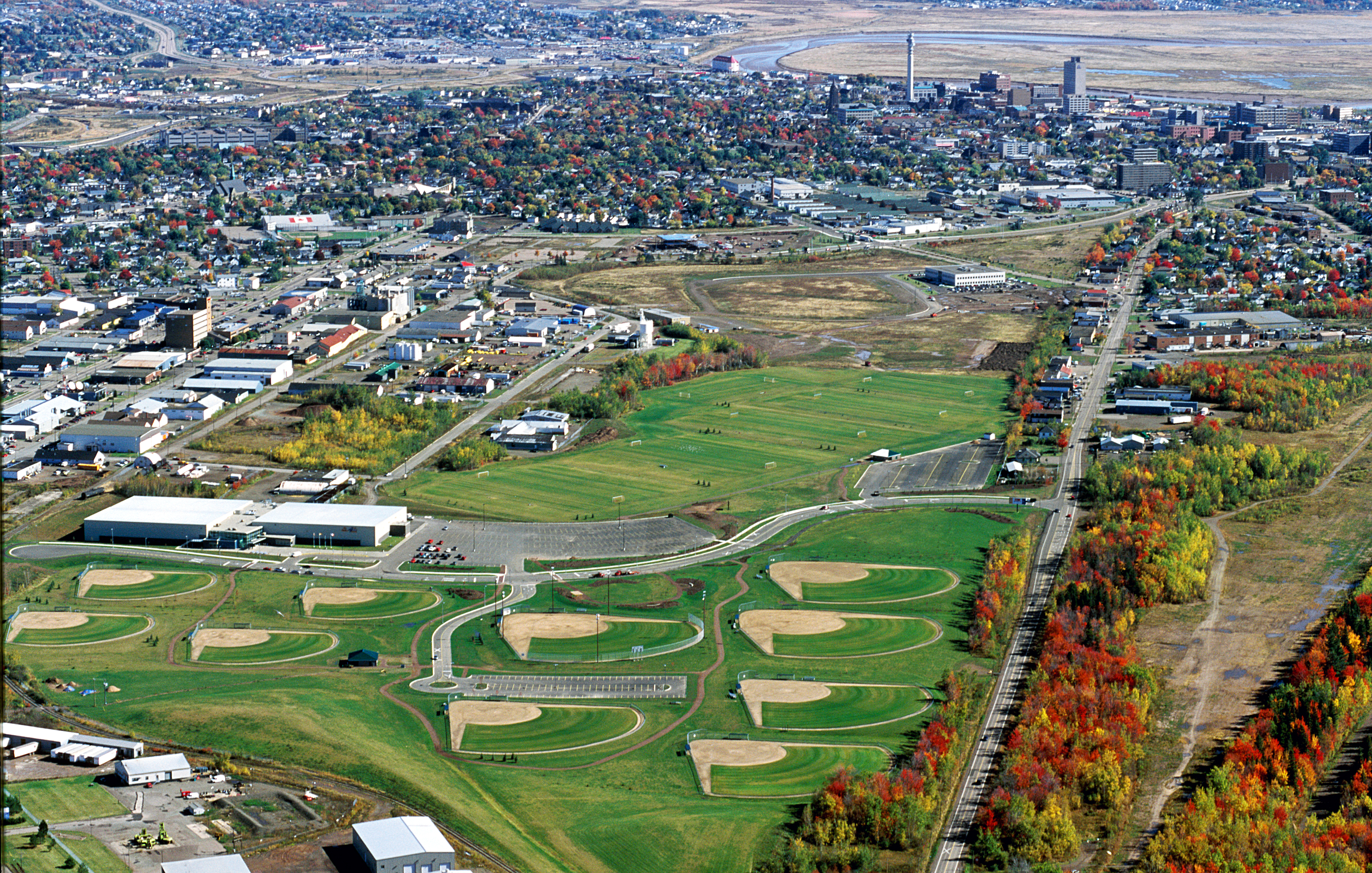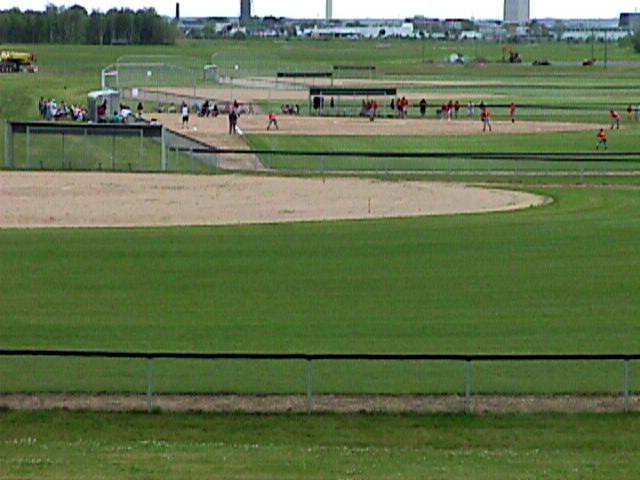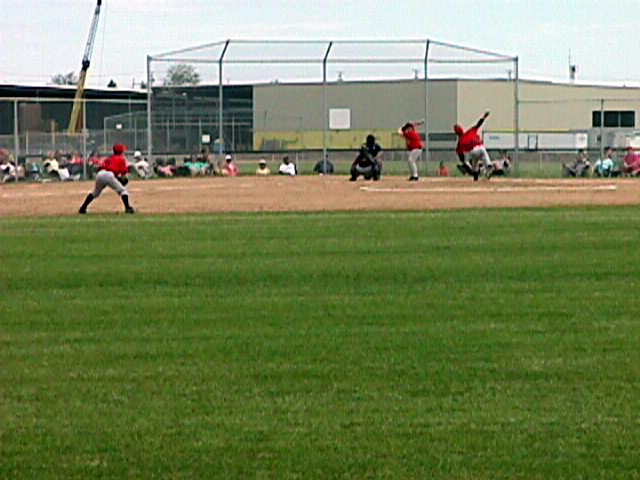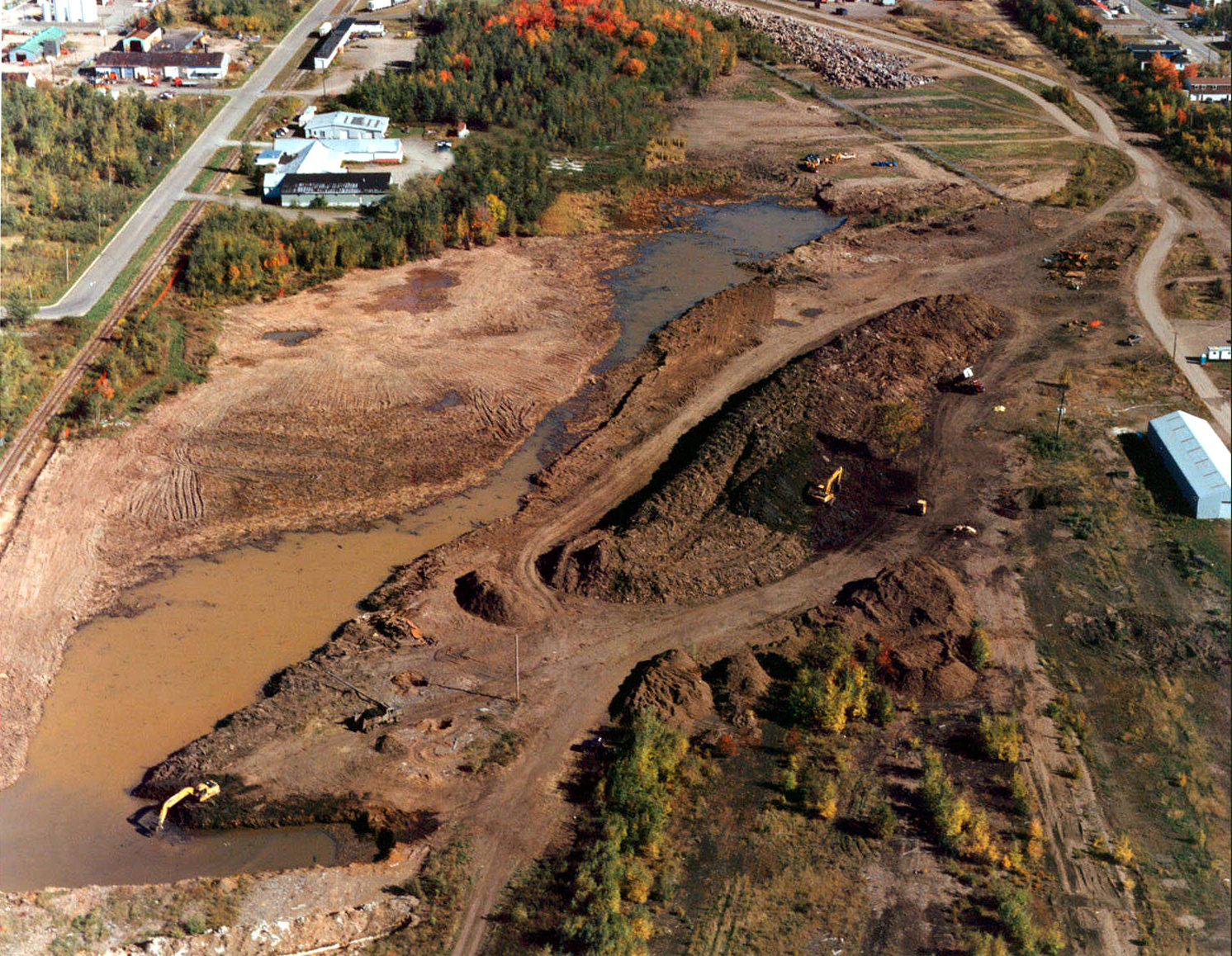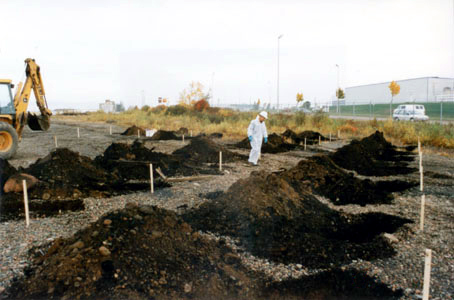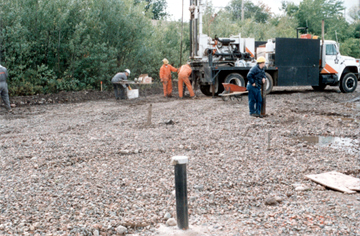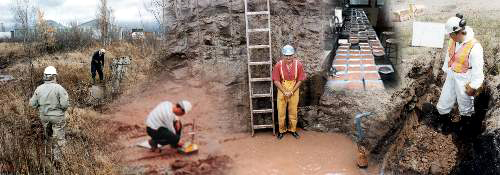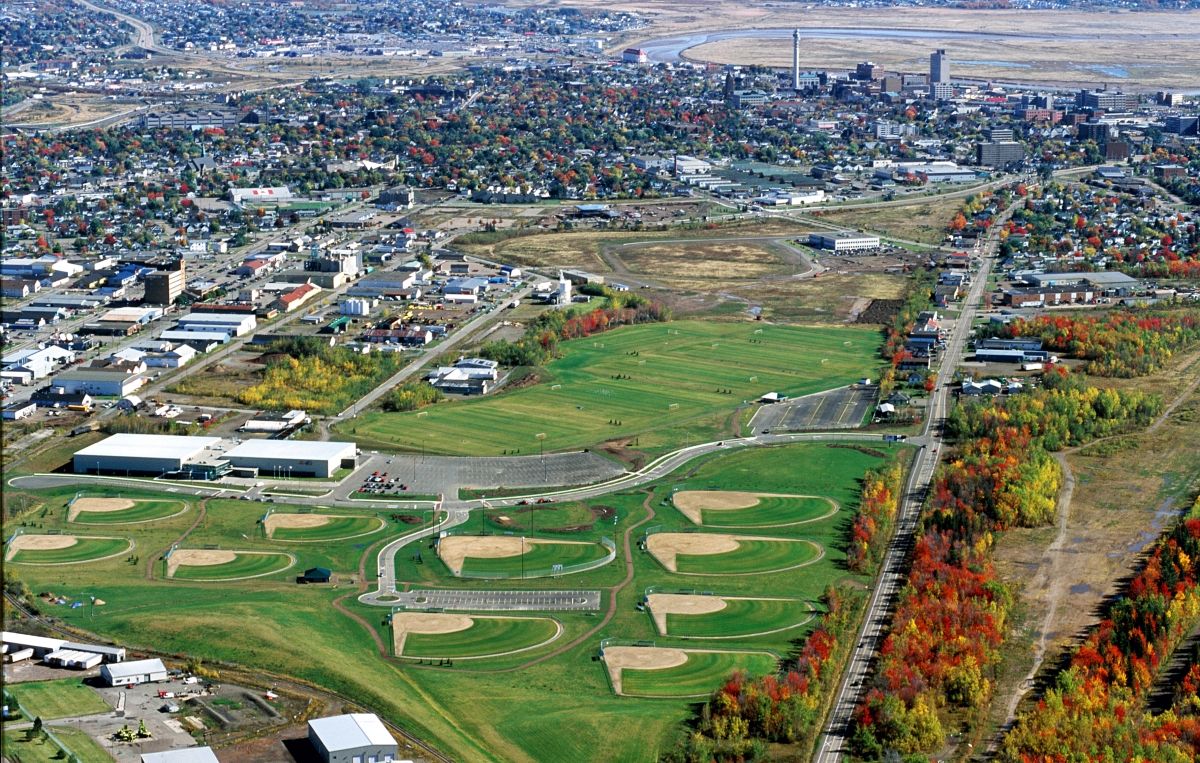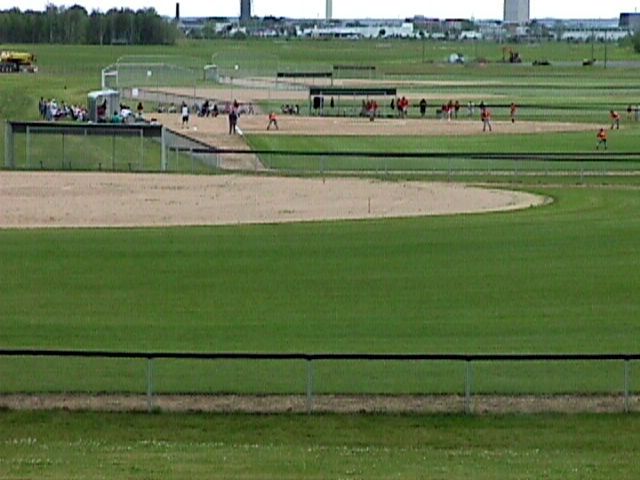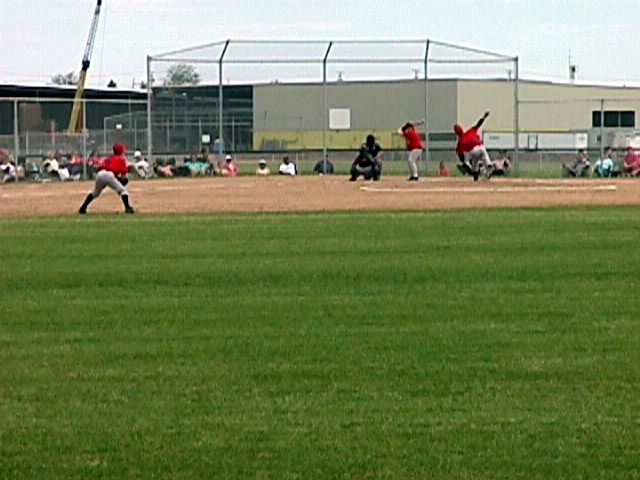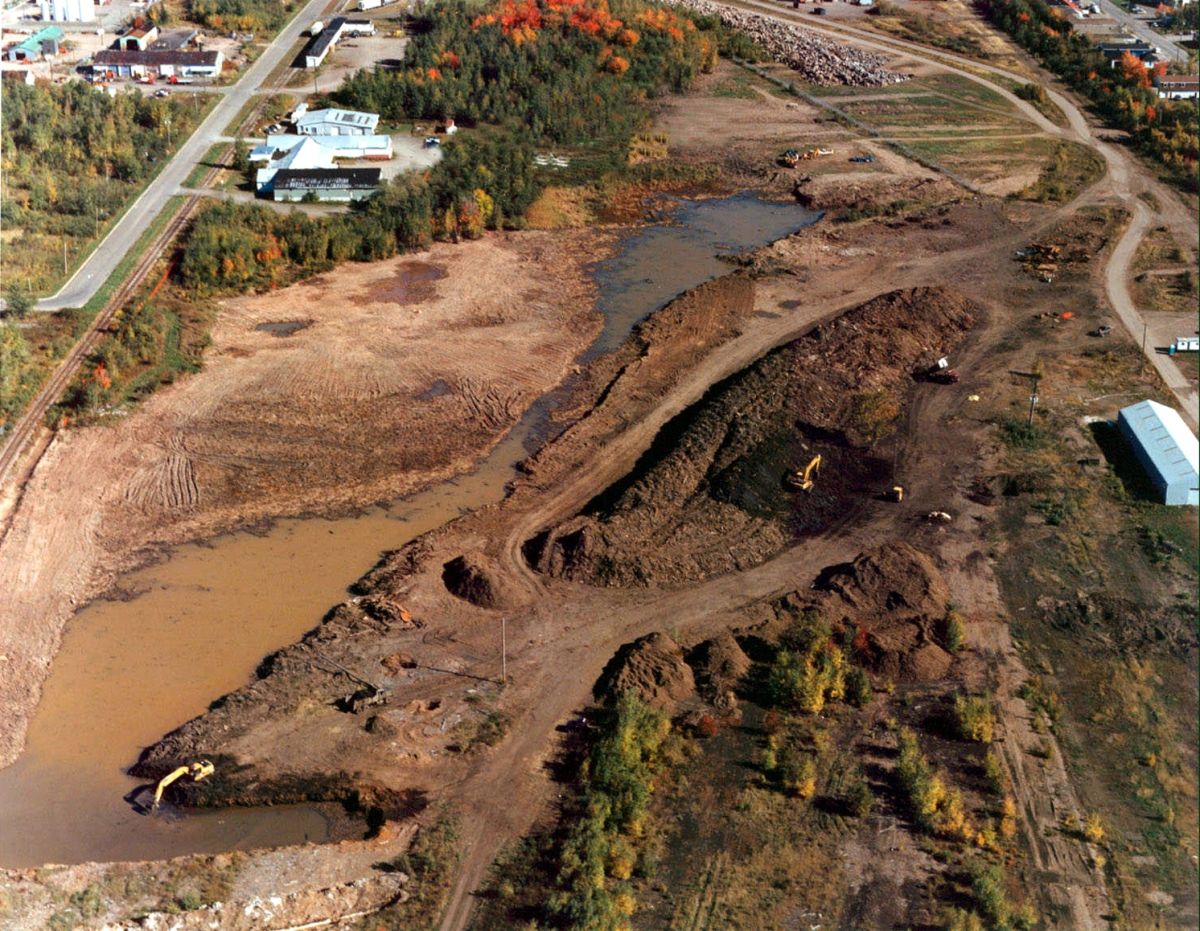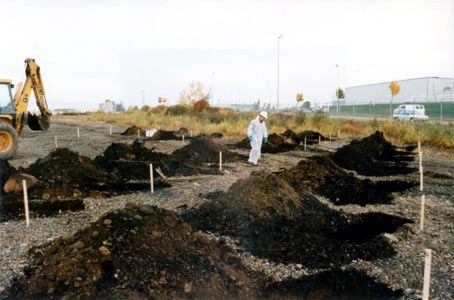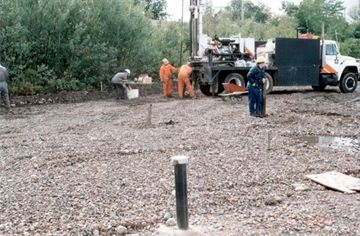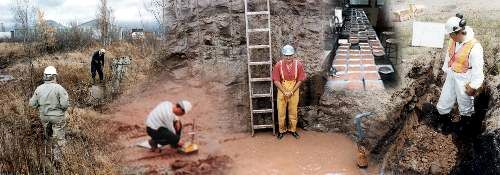The Moncton Shops property of 115-hectares (285-acres) was originally owned by Canadian National Railway Company until its privatization in 1995, when the property was transferred to Canada Lands Company. When Canada Lands first acquired the former CN Rail property, some experts estimated it would take more than 10 years and $100 million to clean up the property which for 80 years had been the site of a busy railroad marshalling yard and repair shop. Remediation of Moncton Shops began in 1997 and was completed by 2000.
Using innovative technology at the time and working collaboratively with local officials and private sector partners, Canada Lands rehabilitated the property in three years, at a cost of approximately $15 million. The Company took the necessary steps to understand how the local community felt about the site through market research, focus groups, telephone questionnaires, and public engagement sessions prior to work beginning. A “Community Round Table” of ten highly regarded community-minded individuals focused on the environmental process of the site and redevelopment and developed a report with 19 recommendations implemented by Canada Lands.
The Moncton Shops property would be planned as three distinctive areas for recreational, residential and commercial needs. The City of Moncton Multi-Purpose Recreational Complex (previously known as Moncton Common) is a 44-hectare (110-acre) parcel that includes 16 sports fields, four soccer fields, 10 basketball diamonds, two football fields and four NHL-sized hockey rinks. During the construction of the Moncton Common, 60,000 metric tonnes of concrete from demolition was reused on site. The original topsoil was blended with sand to create a topsoil for playing fields that was rich in nutrients and capable of faster drainage, while preventing any wasteful use of imported agricultural topsoil from nearby farms.
Franklin Yard is a 25-hectare (64-acre) parcel that would accommodate 650 to 850 residential units. The remaining a 24-hectare (60-acre) parcel became the commercial sector called the Emmerson Business and IT Technology Park.
The Moncton Shops redevelopment was recognized with several awards, including:
• The Greater Moncton Economic Commission and Chamber of Commerce’s 1998 Excellence Award in the Environment Category
• The City of Moncton’s 2000 Award for the Second Annual metro Moncton “Communities in Bloom”
• The Canadian Urban Institute’s 2002 Brownie Award for Sustainability in Community Building
• The Canadian Urban Institute’s 2002 Brownie Award for Best Overall Project
• The U.S. Environmental Protection Agency’s 2003 International Phoenix Award for the Moncton Shops remediation
• The Globe Foundation of Canada and the Globe and Mail’s 2004 Award for Environmental Excellence

